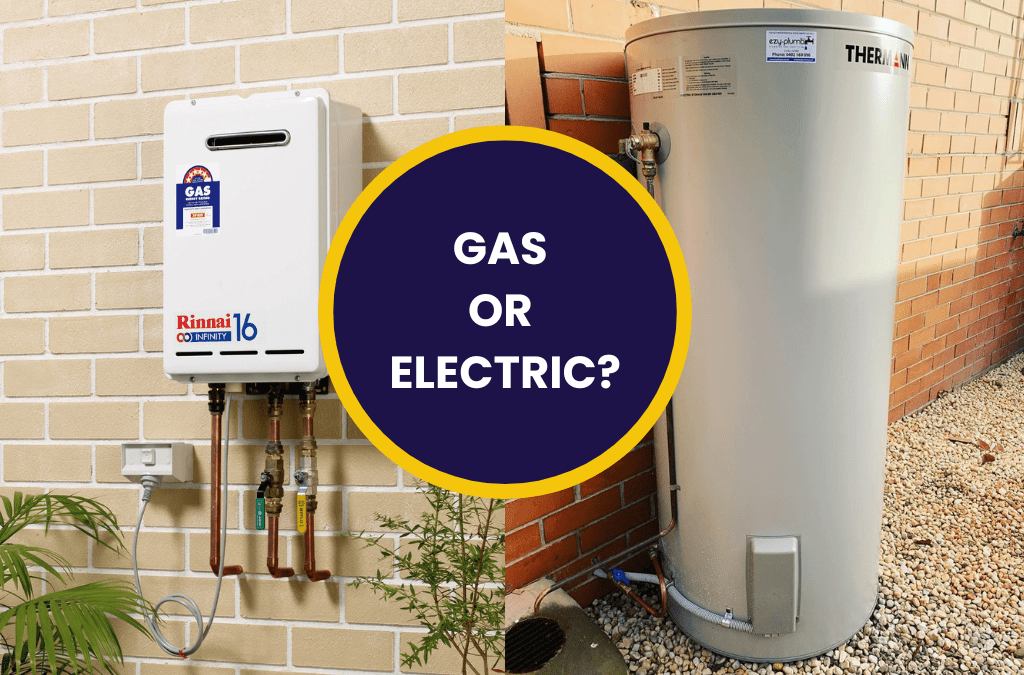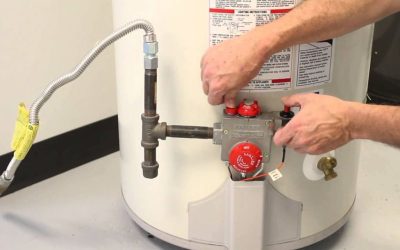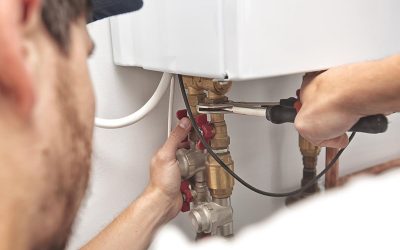Is it time for a new hot water system? Considering the usual gas vs electric hot water conundrum? With new and harsh gas restrictions taking effect in Victoria, and similar conversations brewing across other states, many Queensland homeowners will currently be asking themselves: should I still consider gas?
At S&J Hot Water Brisbane, we supply, install, and maintain both gas and electric systems – and we believe there’s no one-size-fits-all answer. It all comes down to:
- Your home’s setup
- Your water usage
- Your budget
- And your long-term energy goals.
Let’s break it down so you can make the most informed decision for your home.
Is gas hot water cheaper than electric?
In many cases, yes – particularly if you already have a gas connection and your household uses a fair amount of hot water. However, the answer to is gas hot water cheaper than electric depends on a few things:
Usage patterns: Gas is typically more cost-effective for families or homes that use a lot of hot water, as the running costs stay relatively low.
Tariffs: Electricity pricing can vary depending on time-of-use rates and whether you’re on a controlled load tariff.
System type: Instantaneous (continuous flow) gas systems only heat water as needed, avoiding standby losses.
However, it’s worth noting that energy pricing can change – especially if future policy shifts affect gas supply or incentives.
Electric water heater vs gas: Key differences
When comparing an electric water heater vs gas, the first thing to consider is the heating method. Electric hot water systems use an internal element, while gas systems burn natural gas or LPG to heat the water.
This impacts:
Heat-up time: Gas is generally faster.
Installation: Electric systems are often cheaper and simpler to install.
Availability: Electric heaters don’t require a gas line, so they’re ideal for homes without gas.
Electric units are also easy to pair with solar energy, which is a growing consideration for energy-conscious homeowners in Queensland.
Gas vs electric water heater: System types
There are two main types of hot water systems – storage and instantaneous. You can get either type in both electric and gas, but the performance and cost differ:
Storage systems: These heat and hold water in a tank. Both electric and gas versions are widely available and reliable.
Instantaneous systems: Popular in gas models, these heat water only as you need it, saving space and energy.
Choosing between the gas vs electric water heater types also means thinking about recovery time – how quickly the system can reheat water. Gas systems usually recover faster than electric ones.
Gas vs electric hot water running costs
Running costs are one of the biggest factors for Brisbane homeowners. So let’s compare gas vs electric hot water running costs.
Gas systems often have lower energy costs per unit, especially if you already have a gas connection. Instantaneous gas systems are particularly efficient because they only heat water as needed, reducing waste.
Electric systems can be more expensive to run on standard tariffs, but if you’re on a controlled load tariff or use solar power, the costs can be significantly lower. Electric systems also benefit from off-peak pricing, which helps reduce your electricity bills if your household can use hot water at scheduled times.
In short, gas tends to be cheaper for high-usage households, while electric systems can compete or even come out ahead if paired with solar or off-peak rates. Your usage habits, energy provider, and system type all influence the final running costs.
Overall, electric vs gas hot water systems can be quite similar in yearly costs, depending on how much water you use and whether you’re on a solar plan or controlled load tariff.
Should I still choose gas with new rules coming?
Here’s where the conversation gets interesting. While severe gas restrictions are rolling out in places like Victoria, they mainly affect new builds, not existing homes. In Queensland, there’s no ban on new gas installations (yet) – and no policy change has been formally proposed.
If you already have a gas line, installing a new gas water heater vs electric system may still be the better choice for cost, performance, and household size.
At the same time, we’re upfront with our customers: it’s worth considering long-term energy trends. Electric technology – including solar and heat pump options – is becoming more efficient and popular, especially for those investing in renewable energy.
Gas hot water vs electric: Performance & convenience
Performance-wise, there are strong cases on both sides of the gas hot water vs electric debate:
Gas systems deliver quick, reliable hot water with great pressure and fast recovery. They’re ideal for families and large households.
Electric systems are clean, quiet, and ideal for smaller homes or units. They’re also easier to upgrade with renewables or battery storage.
Instantaneous gas heaters, in particular, win praise for their space-saving design and “endless” hot water. However, electric heat pump systems are catching up fast in efficiency.
Is gas or electric hot water cheaper over time?
This is one of the most common questions we hear: is gas or electric hot water cheaper in the long run?
Here’s our honest answer: it depends.
If your home already runs on gas and you need a high-output system, gas is likely more cost-effective over 10+ years. But if you’re adding solar soon or switching to off-peak tariffs, electric systems can beat gas over time – especially with rising gas prices on the horizon.
Electric vs gas water heater: Environmental impact
Another important factor is environmental impact. An electric vs gas water heater comparison shows electric systems, particularly solar or heat pump units, have a much lower carbon footprint.
Gas systems still burn fossil fuels, which may be a concern for sustainability-minded households. However, many people choose gas for its performance, lower short-term costs, and reliable supply during outages.
Electric hot water system vs gas: Installation & cost
In terms of initial setup, electric hot water system vs gas costs vary depending on the unit type and whether you need extra work (like new pipes or flueing).
Electric units are generally cheaper to install, especially in all-electric homes. But gas hot water system vs electric options often win out in large households where the system has to work harder.
We always offer fixed-price quotes and honest guidance on which option makes sense based on your property layout and needs.
Is electric hot water cheaper than gas over time?
In some cases, yes – especially if you pair it with solar or take advantage of controlled load tariffs. But answering is electric hot water cheaper than gas requires looking at:
- Usage patterns
- System efficiency
- Your home’s energy setup
- Your long-term energy goals.
There’s no one right answer – only the right system for your situation.
Gas vs electric hot water: Summing up
Don’t overlook the fact that choosing between gas or electric hot water systems isn’t just about today – it’s about the next 10-15 years. While electric systems are gaining traction with renewable energy upgrades, gas systems remain a reliable and efficient choice for many Brisbane homes.
Here at S&J Hot Water Brisbane, we help you weigh your options honestly and install the system that makes sense for your household – without the jargon or pressure.
Need help choosing your hot water system?
Whether you’re going gas or electric, the friendly team at S&J Hot Water Brisbane is always right here and ready to help. We offer fixed pricing, same-day service, and expert advice backed by real Brisbane experience. Contact us now for honest recommendations and a fast, obligation-free quote.







